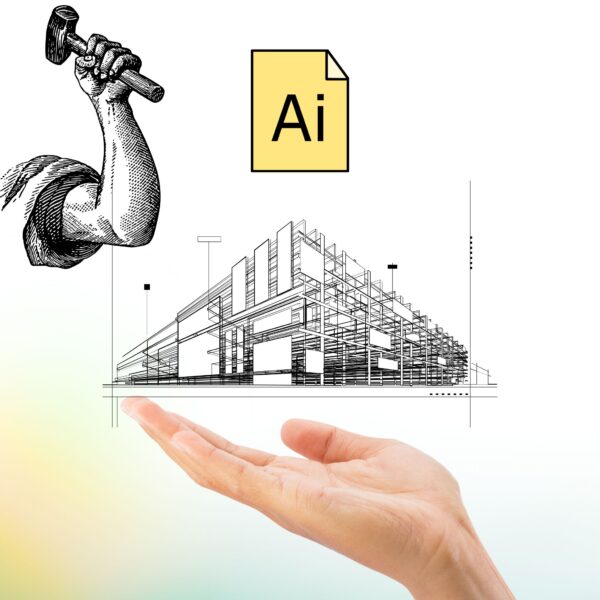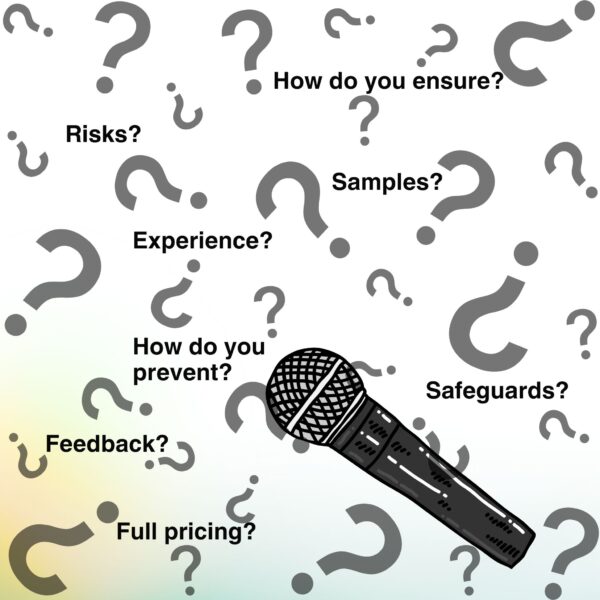The world of artificial intelligence is booming—and with it, a new breed of consultancy has emerged: the AI agency. These aren’t your typical marketing or digital agencies. They specialize in harnessing advanced AI tools, algorithms, and automation to deliver data-driven insights and hyper-personalized strategies that go far beyond what traditional firms offer.
“The global AI market is projected to reach approximately $747.92 billion this year, with a compound annual growth rate (CAGR) of 20.4%. This surge is driven by the increasing demand for AI-driven solutions across various industries, aiming to enhance efficiency, reduce costs, and foster innovation.” – insighto.ai
But with so much buzz (and, honestly, confusion) around the term, it’s tough to know what’s real, what’s hype, and how to separate vendors from true partners. This blog cuts through the noise – explaining what AI agencies do, how they work, what makes them different, and how to pick one that delivers genuine value.
If you’re looking for more immediate results, like “how to build a high impact sales script in 5 minutes”, I recommend you explore our Learning Vault for more easy to apply advice regarding AI and business.

Defining the Modern AI Agency
As the business landscape evolves, so too does the definition of what it means to be an agency in the age of artificial intelligence. Today’s leading firms don’t just dabble in automation—they’re built from the ground up to harness AI as a core part of their value proposition. But what actually sets a modern AI agency apart from its predecessors, and how does it function in practice? Let’s break down what an AI agency really is and why it matters.
What Is an AI Agency?
Put simply, an AI agency is a specialized firm that leverages artificial intelligence to optimize marketing, operations, and business outcomes for clients. Unlike traditional agencies, they don’t just offer human expertise—they integrate sophisticated AI agents and automation to produce results faster, smarter, and at scale.
The Technology: AI Agents and Agentic AI
At the heart of this evolution is the AI agent: an autonomous program that can make decisions and take action with minimal human oversight. Unlike traditional software that follows rigid rules, AI agents adapt, plan, and operate in real time—constantly fine-tuning their approach as circumstances change. And there’s more: “agentic AI” takes it further, deploying teams of intelligent agents that collaborate to solve big, complex problems across business functions.
Real-World Example: AI Agents in Action
When H&M rolled out a virtual shopping assistant powered by AI, shoppers got instant, personalized recommendations and answers to their questions. The result? Cart abandonment dropped by 40%, and conversions tripled. The lesson: AI agencies deliver tangible results, not just shiny tech.
The AI Agency as Your Mission Control Center
Choosing an AI agency is a lot like building a mission control center for your business. Imagine launching a rocket: traditional agencies are the astronauts with their checklists and radios—they work hard, but everything is manual. An AI agency adds advanced sensors, autopilot, and a real-time dashboard that anticipates problems and steers your mission to success. It’s not about firing more rockets—it’s about flying smarter, with fewer surprises and better outcomes.
How AI Agencies Differ from Traditional Firms
While both traditional and AI agencies aim to drive results for their clients, the way they operate, deliver value, and leverage technology is fundamentally different. The table below highlights the key distinctions—so you can see at a glance how an AI agency’s capabilities and approach set it apart from the old-school model.
|
Feature/Capability
|
Traditional Agency
|
AI Agency
|
|---|---|---|
|
Approach
|
Manual, intuition-driven
|
Data-driven, automated, adaptive
|
|
Service Speed
|
Slower (manual processes)
|
Faster (automation, real-time insights)
|
|
Personalization
|
Limited, segmentation-based
|
Hyper-personalized at scale
|
|
Tool Integration
|
Disconnected tools, manual workflows
|
Unified, AI-powered platforms
|
|
Data Handling
|
Hand analysis, limited scale
|
Big data, predictive analytics
|
|
Innovation
|
Incremental, human-led
|
Rapid, AI-driven, continuous
|
|
Resource Allocation
|
More staff-intensive
|
Leaner teams, higher output
|
|
Role of Human Expertise
|
Strategy, execution, oversight
|
Strategy, oversight, AI curation/editing
|
|
Example Deliverables
|
Campaigns, reports, creative assets
|
Automated reports, AI content, smart workflows
|
|
ROI Measurement
|
Post-campaign, manual tracking
|
Real-time, automated dashboards
|
Strategic Delineation: Data, Process, and Partnership
Traditional agencies lean heavily on human intuition and manual analysis—painstakingly combing through data, crafting campaigns, and making incremental improvements by hand. AI agencies flip this script: they use machine learning, predictive analytics, and automation to pore over massive data sets in seconds, optimize campaigns on the fly, and spot trends before a human would blink.
From Vendor to Strategic Partner
AI agencies don’t just “do the work”—they architect solutions.
They become partners, not just vendors, deeply aligning with your business goals and building custom strategies that scale as you grow. As one industry leader put it,
“AI is the hammer, but the agency is the architect”.

What Do AI Agencies Actually Do?
AI agencies are as diverse as the challenges they solve. While every organization’s needs are unique, most agencies provide a menu of core services that blend technology, expertise, and hands-on guidance. The best agencies don’t just deliver algorithms; they become partners, helping you unlock the full potential of AI through tailored solutions and strategic support. Let’s break down the essential offerings you can expect from a top-tier AI agency.
Core Offerings and Specializations
What you get from an AI agency depends on your needs, but here’s the greatest hits list:
- AI-driven marketing & automation: From content creation and optimization to campaign performance tuning, these agencies use AI to write, test, and perfect copy—targeting the right person, at the right time, on the right channel.
- Custom AI development & consulting: Need a predictive model or a proprietary solution that gives you a true competitive edge? The best agencies build and deploy AI tailored to your business.
- AI Tools: If your firm does consultancy as its main service then they should be able to recommend, provide access to, and test alongside you the best AI Tools For Consultants currently available.
- Cross-industry applications: From IT and supply chain to HR and finance, AI agencies automate workflows, detect fraud, forecast demand, and more.
- Strategic consulting:
They won’t just “install software”—they provide true end-to-end AI strategy consulting. This means assessing your organization’s AI readiness, designing a roadmap that aligns with your business goals, and helping you navigate the operational and cultural shifts required for successful adoption.
A top-tier AI agency will:
- Evaluate your current data infrastructure, technology stack, and employee readiness for AI.
- Develop a tailored AI vision and strategy—identifying the right use cases and building a robust data management plan.
- Select and integrate the best-fit AI technologies for your needs and budget.
- Lead change management and staff training to ensure smooth adoption and cultural alignment.
- Provide ongoing monitoring and optimization so your AI solutions evolve with your business.
- All of this accelerates your AI adoption, improves decision-making, and ensures scalability, cost efficiency, and ethical implementation.
Case Study Snapshot
Take Mass General Brigham: by deploying an AI agent to automate clinical documentation, they slashed the time physicians spent on notes by 60%—freeing doctors to focus more on patients. That’s the power of intelligence at work.
Or consider this from the tech sector:
A leading digital billing insights company partnered with AI strategy consultants to accelerate smart customer engagement features. The consulting team began with a deep dive into the client’s tech stack and business processes, produced a detailed “AS-IS” report, and then created a “TO-BE” roadmap for AI adoption – designing process improvements, selecting the right technologies, and leading change management for smooth implementation. By starting with quick wins and scaling up, the company was able to innovate faster and deliver greater value to its users.
Business Models and Economics of AI Agencies
The way AI agencies structure their services and pricing can be as innovative as the technology they deliver. Understanding these models isn’t just about budgeting – it’s about knowing what kind of relationship, flexibility, and long-term value you can expect. From one-off projects to ongoing partnerships, here’s how top AI agencies package their expertise to fit a range of business needs.
Project-Based, Subscription, SaaS, and Hybrid Models
- Project-based: Fixed fee for a defined outcome (great for custom builds or audits).
- Subscription-based: Ongoing, monthly services—think campaign management, analytics, or AI-driven content.
- SaaS: Access proprietary AI tools or dashboards for a recurring fee. This is a great solution for small companies that don’t have the time and need support. But I suggest you learn more about the Open-Source vs. Proprietary Tools: Key Differences, just so you get an idea.
- Hybrid: Many top agencies blend multiple models for flexibility and stability.
Key Pricing Considerations and Hidden Costs
Always dig for hidden fees. Many agencies quote a low “build fee” but tack on recurring “run costs” for API calls or cloud compute. There are other bigger companies like Microsoft who have very well structured websites explaining costs and how to manage these for their services. You should take a look at them to get in the right headspace when dealing with agencies and when wanting to ask questions. Get clear about total cost of ownership, not just the upfront sticker price. As one Reddit user warns, a lot of companies are reselling AI solutions. For example:
Comment
byu/laddermanUS from discussion
inAI_Agents
Market Realities—Hype, Pitfalls, and Differentiation
With so much noise and rapid growth in the AI agency space, it’s easy to lose sight of what’s real and what’s just marketing spin. What an AI Automation Agency can do for a company depends a lot on the company itself, and their client-requirements. To separate substance from speculation, it helps to look at how the industry is viewed by insiders and skeptics alike.
Hype vs. Reality: The Reddit Perspective
The AI agency world is awash in hype. On Reddit and other forums, you’ll find plenty of skepticism—many see the “AI agent model” as a get-rich-quick scheme or a bubble waiting to pop, or agencies not having the budget to actually own solutions or merge them with other solutions. A great comment reply in these types of threads is:
Comment
byu/JakeHundley from discussion
inagency
To which another user replied:
Comment
byu/JakeHundley from discussion
inagency
In a crowded landscape where shortcuts are tempting and hype is everywhere, the agencies that stand out – and survive – are the ones willing to invest in real expertise, original solutions, and long-term value, not just the latest buzzword.
Tool vs. Service – How to Get Real Value
Here’s the real lesson, echoed by industry insiders:
The best AI agencies don’t just chase trends or bolt on the latest buzzword—they work alongside clients to build solutions that truly fit the business. It’s about prescribing the “medicine you actually need,” not what simply sounds impressive or looks good in a demo. Real value comes from thoughtful discovery, honest conversations about what will actually work, and a willingness to challenge assumptions.
Different Businesses, Different Needs:
- Enterprises: Usage-based pricing can work well for enterprises with technical teams capable of managing complex integrations and optimizing usage.
- Large companies often negotiate hybrid models tailored to their specific needs.
The Human-in-the-Loop Advantage
AI is powerful, but it can’t replace deep expertise, creativity, or the kind of strategic thinking that makes brands and messaging resonate with other humans. The best AI agencies are “curators”—blending algorithmic efficiency with human insight. That’s how you get authenticity and results, not just automation.
Ensuring the Human-in-the-Loop Advantage:
For AI Adoption & Implementation:
- How do you involve subject matter experts and end users throughout the AI development and deployment process?
- (E.g., Do you conduct workshops, interviews, or feedback sessions before and after rollout?)
- What safeguards are in place to ensure human oversight and accountability in all AI-driven decisions?
- (How are humans empowered to override or audit the AI’s outputs?)
- Can you share examples of how “human-in-the-loop” processes improved outcomes for past clients?
- (Look for real stories, not just theory.)
- How do you balance automation with human expertise, especially for business-critical or customer-facing workflows?
- (When do humans step in vs. when does the AI operate autonomously?)
- How do you train our team to collaborate effectively with AI tools, and what support do you offer post-launch?
For Content Creation:
- How do you blend AI-generated content with human editing to ensure brand voice, accuracy, and creativity?
- (Are there professional writers, editors, or subject experts reviewing and refining the output?)
- What is your workflow for fact-checking and adding original insights or personal anecdotes to AI-generated drafts?
- How do you prevent AI content from sounding generic, robotic, or lacking emotional resonance?
- (Do you have human reviewers who add nuance, storytelling, or humor?)
- Can you provide samples showing the difference between raw AI output and the final, human-enhanced content?
- How do you ensure transparency—so it’s clear when content, recommendations, or decisions are made by humans, AI, or both?

Tangible Value – AI Agency Case Studies & ROI
When it comes to AI, results matter more than promises. The true measure of an agency’s value is found in real-world outcomes—how their solutions drive growth, efficiency, and customer satisfaction across different industries. Let’s take a closer look at some standout examples where AI-driven strategies delivered measurable impact.
Industry-Specific Success Stories
- H&M: Virtual assistant reduced cart abandonment by 40%, tripled conversions.
- Mass General Brigham: AI documentation agent cut physician note-taking time by 60%.
- Siemens: Predictive maintenance agent slashed downtime by 30%.
- Bank of America: “Erica” AI handled over a billion interactions, resolving 98% of customer issues.
Quantifying ROI: What to Look For
Look for metrics that matter: time saved, revenue growth, error reduction, customer satisfaction. Top consulting firms like McKinsey now lead entire digital transformations for global brands, raising the bar for what an AI agency can and should deliver.
AI-Powered Presentations for Agencies and Clients
Agencies and clients need to turn rough ideas into clear presentations – fast. Aurora Slides uses AI to make that process seamless, turning scattered content into polished stories in moments.
Turning Unstructured Information into Impactful Stories
Let’s be honest: turning messy notes, call transcripts, or rough drafts into polished, on-brand presentations is a headache for agencies and clients alike. It’s a creative drain that eats up hours better spent on strategy. Aurora Slides eliminates that pain and it’s not just any AI Pitch Deck. Just drop in your content—notes, bullet points, or even a chat transcript – and it instantly transforms the chaos into a visually sharp, agency-ready deck. It’s like having a designer – who also happens to know deck writing – on call 24/7.
Key Features at a Glance
- Instantly map any document to a clear narrative using intelligent AI storytelling and design templates.
- Edit and collaborate in real time with a conversational AI—just type what you want changed.
- Add images, speaker notes, and rearrange slides on the fly.
- Share and present securely: set permissions, publish public links, or run live sessions with clients.
- Always know what’s happening with your content—full transparency, full control.
With Aurora alongside Aurora Slides, agencies spend less time wrangling slides and more time delivering insights and results.
How to Choose and Evaluate an AI Agency
Choosing the right AI agency isn’t just about who has the flashiest tech or boldest promises. It’s about finding a partner who’s transparent, experienced, and aligned with your business goals. Before you make a decision, use this quick checklist to separate true experts from the rest.
Due Diligence Checklist
Before you sign, run through this checklist:
- Can they show case studies with measurable outcomes for similar projects?
- Are they transparent about technology stack, data privacy, and hidden fees?
- Do they offer references from the same industry?
- Is the pricing model clear, with no “run cost” surprises?
- How do they handle security and IP ownership?
- How do they handle feedback?
Red Flags and Best Practices
Watch out for the following “red flags”:
- Vague pricing, “giant prompt” promises, or overuse of jargon
- Instant results promises
- Agencies unwilling to show references or specific results.
- One-size-fits-all solutions that don’t address your business needs
- Using your team’s time to train their AI instead of hearing your ideas on how it could help the team
The Future of AI Agencies
The AI agency market is evolving fast. As the tech gets commoditized, the real value shifts to strategy, integration, and change management. The lines between agencies, dev shops, and consultancies will blur. The agencies that win will master the blend of human creativity and AI efficiency. Also, let’s not discount the surprising amount of individuals that will decide to go solo and run their own AI Business, or provide their expertise as solo AI Consultants.

Conclusion & Key Takeaways
- Real AI agencies don’t just resell tools—they deliver proprietary solutions, strategic partnerships, and measurable outcomes.
- Look past the hype: pick partners with expertise, transparency, and a proven track record.
- The future belongs to agencies that empower humans—not replace them—with AI.
Feel free to contact our team at Aurora to explore your AI Adoption Process.
Frequently Asked Questions (FAQs)
What is Aurora Slides, and how does it help agencies and clients?
A: Aurora Slides is an AI-powered presentation tool that transforms rough notes, transcripts, or ideas into polished, on-brand slide decks in minutes. It’s designed for agencies and teams who want to save time, boost creativity, and deliver professional presentations without the hassle of manual formatting or design.
How are AI agencies different from traditional digital agencies?
A: They automate and personalize at scale, using machine learning to make smarter, faster decisions – that should allow you to deliver faster results to your own clients.
What questions should I ask before hiring an AI agency?
A: Ask for case studies, pricing transparency, data privacy details, and specific references.
What are red flags to watch for when dealing with Agencies in general?
A: Vague pricing, no real-world results, and “black box” solutions.
What makes Aurora Slides different from other AI or presentation software?
A: Unlike generic AI tools, Aurora Slides is purpose-built for agencies and collaborative teams. It combines intelligent storytelling, real-time editing, and secure sharing – all wrapped in intuitive design templates created by experts. You get agency-level results, seamless teamwork, and total control over your content from start to finish.
